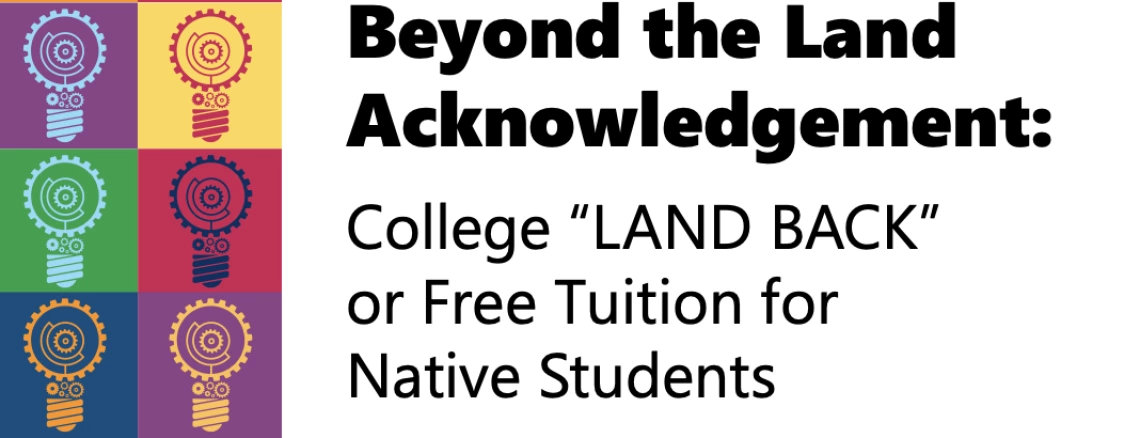Land acknowledgements have become a powerful introduction to convocations, graduations, and conferences in higher education. As defined by The Guide to Indigenous Land and Territorial Acknowledgements for Cultural Institutions “an Indigenous Land or Territorial Acknowledgement is a statement that recognizes the Indigenous peoples who have been dispossessed from the homelands and territories upon which an institution was built and currently occupies and operates in.” The key word in the definition of a land acknowledgement is dispossession. Settler colonialism is an ongoing process and system of power that perpetuates the loss of land by Indigenous people.
The settler colonial educational institution built on Indigenous lands revolves around the denial of Indigenous rights and the erasure of Native people. The truth is – if it were not for the loss of land by Indigenous peoples, American colleges and universities would not exist. Institutions must challenge themselves to move away from encouraging acts that are performative, into commitments of transformative change. This policy brief explores the concept of “land back” in higher education. I begin by problematizing land acknowledgements without land based reparations. I then discuss and present two options for institutions:
- Return institutional land back to Native nations.
- If institutional land cannot be returned to Native nations, provide free higher education to Native students on their traditional homelands as landbased reparations.

